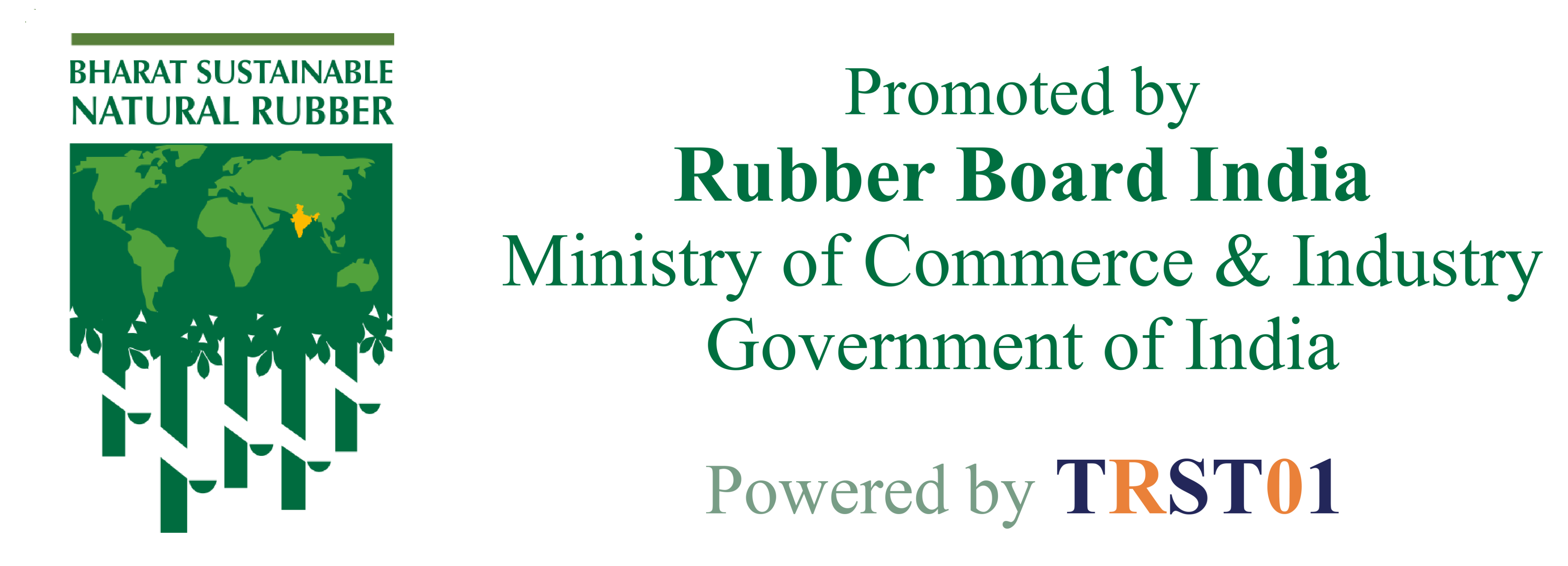




The EUDR is a legislative measure enacted by the European Union to combat deforestation and forest degradation linked to the supply chains of specific commodities, including rubber. It aims to prevent products associated with deforestation from entering the EU market. Here is the link to the full EUDR regulations.
The EUDR was introduced to address environmental concerns related to global deforestation and forest degradation, which are critical for carbon storage, biodiversity, and climate regulation. It ensures that European trade does not contribute to global deforestation.
The EUDR targets high deforestation risk commodities such as palm oil, soy, beef, wood, cocoa, coffee, and rubber, including their derivative products like tyres, conveyer belts, chocolate, furniture, and others. Here is the link to the HS Codes of relevant materials that are covered under EUDR
Bharat rubber exporters and rubber based product exporters must provide information and documentation that enables EU importers to comply with the EUDR. This includes details on the supply chain, land use rights, plot polygons of the farm from where the rubber was sourced, and legal compliance.
Exporters must implement a due diligence system to prove that their rubber products are not linked to deforestation and are produced in accordance with the law of country of production. The requirements include:
Compliance requires:
Importers who fail to comply with EUDR requirements may face:
The primary responsibility for ensuring compliance lies with the importer of Rubber or Rubber products in the European Union countries. The latest list of European Union Countries is provided here.
This means that companies or individuals importing commodities or products covered by the EUDR into the EU market are legally obligated to:
While the importer has the primary responsibility, other stakeholders also play crucial roles in ensuring EUDR compliance:
The BSNR (powered by TRST01) is an initiative by the Rubber Board of India, designed to facilitate compliance with the European Union Deforestation Regulation (EUDR) for the Bharat rubber ecosystem. It aids exporters, processors, and traders by providing essential compliance tools such as traceability certificates, due diligence declarations, and geolocation data sets (GeoJson) necessary for the EU Import System (EUIS). This platform streamlines the compliance process, making it more efficient for stakeholders involved in the rubber supply chain targeting EU markets.
We encourage all stakeholders—including exporters, traders, and processors—to register on the BSNR platform. This initiative by the Rubber Board is designed to facilitate seamless compliance with the European Union Deforestation Regulation (EUDR). By joining the BSNR platform, you will benefit from:
Bharat rubber exporters can register on the BSNR platform through the Rubber Board Website. Upon registration, the platform provides all necessary documents and data including traceability certificates, due diligence declarations, and geolocation data sets to ensure full compliance with the EUDR, once the polygon mapping is complete.
Yes, there is a registration fee applicable for large estates (greater than 50 hectares) and exporters (SMEs and Non-MSMEs) in order to access the BSNR platform and its compliance services. There is no fee for Smallholder Famers, Dealers, Processors and Non-Exporting Manufacturers.
No, there are no fees for traders, processors, or farmers on the BSNR platform.
A traceability certificate, issued by the BSNR platform, verifies the origin of rubber products and confirms their compliance with the European Union Deforestation Regulation (EUDR). This certificate includes due diligence statements (DDS), polygon data sets, and traces the entire supply chain. The fee for each certificate varies depending on the specifics of the export consignment.
Compliance will be monitored by EU member state authorities through regular audits and inspections. Exporters must maintain detailed documentation of their supply chain and product origin, segregation/storage policies, which will be facilitated by the BSNR platform. Non-compliance can lead to fines, import bans, and reputational damage.
The Rubber Board plays a crucial role in authenticating exporters and ensuring they meet the EUDR requirements. It provides oversight and support, offering guidance on the necessary documentation for EUDR compliance and verifying the accuracy of the documents and data provided through the BSNR platform.
SMEs (Small and Medium-sized Enterprises) are defined according to Directive 2013/34/EU, which categorizes businesses into three groups based on their size:
A business must evaluate its number of employees and financial metrics—annual turnover or balance sheet total—according to the categories established by Directive 2013/34/EU.
SMEs enjoy certain benefits to help them manage the challenges of compliance:
Correctly classifying as an SME can significantly impact the compliance requirements and deadlines applicable under the EUDR. Misclassification could lead to regulatory issues, missed deadlines, or improper compliance procedures.
If there is any uncertainty regarding classification as an SME under the EUDR, it is recommended to:
Not entirely. The EUDR includes some provisions to simplify compliance for SMEs:
SMEs may encounter specific challenges, such as:
There are several ways SMEs can receive support, including:
Failure to comply with the EUDR could result in penalties, including:
SMEs can find more information on the EUDR by consulting: